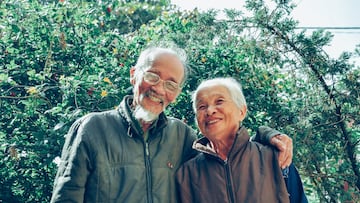The Okinawa diet: the Japanese secret to living to 100 years
Laura Jorge, dietitian-nutritionist, founder and director of the Laura Jorge nutrition and psychology center, spoke with us about what we can learn.

Okinawa, an island located off the coast of Japan, between the East China Sea and the Philippine Sea, has earned the reputation of being one of the world’s most long-lived communities. In fact, it is renowned for being a blue zone, which means that exceptionally long and healthy lives are lived there compared to the rest of humanity.
The other locations include Loma Linda (United States), the Nicoya Peninsula (Costa Rica), Sardinia (Italy), and the Island of Icaria (Greece). Although longevity has been attributed to various factors, in Okinawa, it is worth highlighting genetic factors, environmental conditions, a healthy lifestyle, and above all, their diet.
What healthy habits can help me live longer?
According to data revealed by Science Direct, 68 out of every 100,000 inhabitants of this area are over 100 years old. Specifically, their diet revolves around tubers, especially sweet potatoes, green and yellow vegetables, soy-based foods, and medicinal plants. They also moderately consume marine foods such as fish, seafood, and seaweed, lean meats, dressings, and medicinal spices.
In this Japanese diet, dairy, nuts, refined carbohydrates, processed meats, numerous fruits, nuts, and many seeds are not included. Similarly, they do not consume beef, poultry, or processed products such as sausages, cured meats, bacon, or ham.
Their residents also do not include eggs, butter, cheese, milk, yogurt, processed cooking oils, or breakfast cereals in their dishes. We discussed all of this and more with Laura Jorge, a dietitian-nutritionist, founder, and director of the Laura Jorge Nutrition and Psychology Center.

- QUESTION: Longevity and low incidence of chronic diseases are characteristics associated with the population of Okinawa. How does the Okinawa diet contribute to these outcomes, and what lessons can we draw for global health?
- ANSWER: What sets apart individuals adhering to the Okinawa diet as a reference is not just their way of eating. These individuals extend their healthy habits beyond diet; it’s ingrained in their culture. They often have their own gardens, engage in numerous activities, and boast a very active social and family life.
This lifestyle they lead correlates with the low incidence of chronic diseases, optimal body fat percentage, and lower prevalence of diabetes, hypertension, or obesity.
“We live in constant stress”
Laura Jorge
The Okinawa population is an example to follow that may seem unattainable to us because we live in constant stress, with a lack of rest, a lot of sedentary lifestyle and too many ultra-processed foods in our diet, which is also rich in fats, sugars, salt and refined oils. Therefore, we are much more prone to chronic diseases and much less likely to live long lives.
- QUESTION: In terms of nutritional balance, how is the Okinawa diet structured to ensure adequate intake of essential nutrients?
- ANSWER: The Okinawa diet prioritizes both macronutrients and essential micronutrients. It comprises a very comprehensive diet primarily based on plant-based foods. Their menus are typically low in calories, with few fats and carbohydrates such as brown rice and sweet potatoes, alongside a variety of vegetables, fruits, legumes, and soy. Another prominent ingredient in this diet is fish, along with seaweed. Regarding meats, they consume very little, and when they do, it’s lean meat. Spices and herbs for dressings and seasoning dishes are also integral to the daily diet of Okinawans.
- QUESTION: It is said that the Okinawa Diet focuses on fresh and local foods. What is the importance of the origin and freshness of foods in this diet?
- ANSWER: Processed foods are not part of their diet; instead, they always consume fresh, local, and seasonal foods. Furthermore, with these types of foods, we know that we are consuming vitamins, minerals, and antioxidants—real food that also tastes better!
“Understanding ourselves as a whole is essential”
Laura Jorge
- QUESTION: What practical advice can you offer to people who want to adopt some principles of the Okinawa Diet into their daily lifestyle? Are there any potential challenges to consider when following this dietary approach?
Related stories
- ANSWER: The first advice is to accept the situation you are currently in and understand that this will be a gradual process through which you will improve your lifestyle little by little. Once you start and see how you embrace this diet, you can set realistic goals and adapt them to your needs.
Lastly, understanding ourselves as a whole is essential for these new habits we want to define us to work. Once we start taking care of our diet, we will also improve the exercise we practice daily, attempt to manage stress or anxiety in the best possible way, and give the importance that rest deserves.